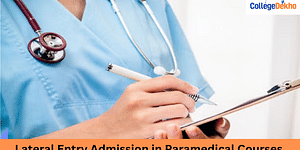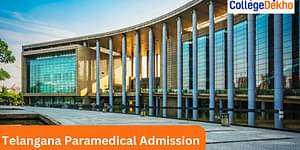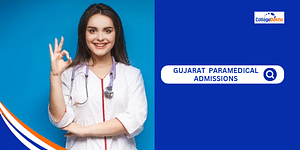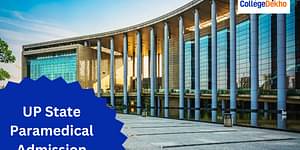NIT Tiruchi Collaborates With Vinayaka Mission’s Research Foundation (VMRF) For Research
NIT Trichy has collaborated with Vinayaka Mission’s Research Foundation (VMRF) through a Memorandum of Understanding (MoU) for joint research, content publishing, and patents application for external research funding. The MoU has been signed between both the Institutes for a 5 years validity. The MoU will be for research in different cutting edge technologies such as Artificial Intelligence, Nanotechnology, Physics, Chemistry, Lightweight Materials, Structural Engineering, Metal Joining, Cyber Security, Internet of Things, Hardware Security, and Renewable Energy.
The MoU also includes the program for the exchange of students between NIT-T and VMRF which will include 24 constituent colleges & schools of VMRF including Engineering, Medical, and other streams across multiple campuses. Through the collaboration, it has been determined that both the Institutes will be sharing academic information, scholarly information, materials and publications, and research facilities with each other. The MoU was signed between NIT-T and VMRF teams which consisted of NIT-T, Prof. Aghila, B. Jayakar, Registrar; S.A.V. Satya Murthy, Director - Research, A. Nagappan, Director - Innovation, Incubation, and entrepreneurship (VMRF), and S. Suriya Narayanan - Deputy Director - Research.
School of Allied Health Sciences, VMRF Awarded “Best in Allied Health Sciences Education” at Salem District
School of Allied Health Sciences, Vinayaka mission’s Research Foundation (DU) has been awarded “Best in Allied Health Sciences Education” at Salem District. The award has been awarded to the Institute for its contribution to society through education and Empowerment of students belonging especially to rural areas during the “Engal Oor Engal Perumai” award ceremony program. The program is conducted every year by Kalaignar Seithigal. The program was organized in the Salem district with the aim of recognizing & encouraging the organizations that have made significant achievements in their respective fields. The award was received by Prof.Dr. B. Sendilkumar, Dean AHS, VMRF (DU). The Chief Guest of the ceremony was Dr.K.Sivaraman, Siddha Medicine, Salem. Various other notable people were present in the ceremony including Mr.Rajendran, MLA, Salem District Central Chief Secretary, Mr.Sezhiyan, Korada, Tamilnadu Legislative Assembly, Mr.Christhuraj IAS, Salem Corporation Commissioner, Mr.Abhinav, IPS, Superintendent of Police, Salem & Mr. Madasamy, Deputy Superintendent of Police, Salem & various academicians, Industrialists.
Related News

B.Sc Nursing Vs B.Pharm Vs BPT - Finalise the Best Course For You
With the commencement of new academic sessions all around the nation, students are looking forward to pursuing the best undergraduate programmes. Deciding between multiple courses can be a very tough decision as the next 3 to 5 years of one’s life will be invested in the same. So, it becomes of utmost importance for students to compare their prospective options well before making a final decision.

Lateral Entry Admission in Paramedical Courses 2025 - Dates, Eligibility, Seat Matrix, Selection Process
Lateral Entry Admission in Paramedical Courses 2025 is expected to tentatively begin in various states in August 2025. Students are required to complete a Diploma in Paramedical Sciences to get admissions through lateral entry to various colleges across the state. The Lateral Entry Admission in Paramedical Courses in every state is conducted by the state or university authorities. Stduents must also have passed 10+2 with 50% marks along with physics, chemistry and biology as mandatory subjects from a recognised board to qualify for admission to top paramedical colleges in India through lateral entry.
Some of the well-known colleges that take admissions through lateral entry are Loverly Professional University, Sanskriti University, Symbiosis Institute of Health Sciences, West Bengal University of Health Sciences etc. Admissions through lateral entry is a process through which paramedical students get direct admissions in second-year rather than getting admissions in first year. This saves one year of studies for students in paramedical universities. The process of admission through lateral entry for paramedical courses varies based on institutions. The admissions are mostly based on merit acquired by students in their diploma degrees. In this article, students can find the Lateral Entry Admission in Paramedical Courses 2025 process, eligibility criteria and more.
Also Read: Best Paramedical Courses after 12th

CENTAC Puducherry Paramedical Admission 2025: Counselling Process, Dates, Seat Matrix
CENTAC 2025 Application Form will be released soon through online mode. Centralized Admission Committee (CENTAC), Government of Puducherry manages the admission procedure. This state-level admission procedure will be held for selecting the Candidates for admission in various Engineering, Pharmacy, and Medical Programmes. Candidates will get selected for admission based on their merit and scores on national-level exams. Selected candidates from the admission procedure will get admission in various courses provided at Govt. and private institutions across the state. Candidates must fill out the application form before the due date set by the university. The candidates can get admission within the faculty based on their scores and performance within the HSC exams or any equivalent examination. Centralized Admission Committee (CENTAC) is responsible for Puducherry Paramedical Admissions 2025. Puducherry offers admission to various paramedical courses such as B.Sc. in Medical Radiology & Imaging Technology, DMLT, Bachelor in Physiotherapy, etc.

J&K Paramedical Admission 2025 - Counselling, Eligibility, Entrance Exam
J&K Paramedical / ANM GNM 2025 will be conducted on the exam date decided by JKBOPEE. The Jammu and Kashmir Common Entrance Test for admission to Paramedical and other Diploma Courses (JKCET Paramedical) is a State level Nursing entrance exam organized by JKBOPEE, also known as the Jammu and Kashmir Board of Professional Entrance Examination. The official website for this exam is jkbopee.gov.in. The J&K Paramedical / ANM GNM serves as the basis for admission to ANM, GNM, Paramedical, and other Diploma Courses (Medical, Pharma Asstt., Lab Assistant, Dental Assistant, Ophthalmic Assistant, X-Ray Assistant, ECG Tech., Anes. Tech., Sanitary Inspector, OTT Tech., ISM, Dialysis Tech., D.Pharmacy, Physiotherapy Asstt) in Government and Private Para-medical Colleges of the UTs of J&K/Ladakh.

Goa Paramedical Admission 2025: Dates, Eligibility, Application Form, Seat Allotment
Goa Paramedical Admission 2025: Goa Paramedical Board carries out the admission process. Admission to Goa paramedical institutes is granted based on merit. To gain admission, candidates need first to fill out the application form. Candidates who register successfully are the ones who are considered for further admission rounds. The Goa Paramedical Admission 2025 application form will be available in March/April 2025. The paramedical board conducts the Goa Paramedical Admission 2025 entrance exam for the aspirants. Further, based on students’ performance in the exam, a seat is allotted. Aspirants wanting to get admission to Goa paramedical colleges must go through the official notification PDF thoroughly.
Top Courses at School of Allied Health Sciences, Salem - A constituent College of Vinayaka Mission's Research Foundation
Similar Colleges
Vinayaka Mission's College of Physiotherapy, Salem - A Constituent College of VMRF DU
Vinayaka Mission s Avaitaion Academy
Mahendra College of Physiotherapy, Salem








